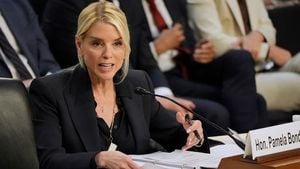French President Emmanuel Macron is facing the most severe political crisis of his presidency, as the collapse of his latest government has left him increasingly isolated and under mounting pressure to resign. The situation has reached a fever pitch, with former allies abandoning him, opposition parties boycotting negotiations, and nearly half of French voters blaming him for the country’s deepening stalemate.
The turmoil began in June 2024, when Macron made the controversial decision to dissolve the National Assembly, France’s powerful lower house of parliament. According to AP, this move was intended to break a legislative deadlock, but instead it triggered fresh elections that resulted in a parliament dominated by Macron’s opponents. Since then, France has cycled through a rapid succession of prime ministers, none of whom have managed to form a stable government.
The latest casualty is Sébastien Lecornu, who resigned on October 6, 2025, after just 27 days in office—the shortest tenure for a French prime minister in modern history, as Reuters reports. Lecornu’s resignation marked the fourth time a prime minister has stepped down since the dissolution, and the fifth overall in just two years. Within hours of his resignation, Macron gave Lecornu a 48-hour window to conduct last-ditch negotiations with the so-called socle commun—a coalition of conservatives and centrists that had previously offered shaky support for Macron’s governments.
In a statement released Tuesday, Lecornu said he had proposed that talks focus on two urgent matters: "The adoption of a budget" and "the future of New Caledonia." He claimed all parties agreed on these priorities and expressed a shared desire to find a rapid solution. Lecornu also planned to meet with each political party between Tuesday afternoon and Wednesday morning. However, these efforts quickly unraveled as key opposition figures—including far-right National Rally leaders Marine Le Pen and Jordan Bardella, and left-wing France Unbowed leaders Mathilde Panot and Manuel Bompard—refused to participate in the talks. Le Pen reiterated her demand for snap parliamentary elections, calling them "necessary," while Bardella declared, "We are ready to govern."
This wave of opposition rejection underscored Macron’s isolation, even among his closest allies. On Monday night, Gabriel Attal, Macron’s former prime minister and once-loyal lieutenant, expressed open frustration on broadcaster TF1: "Like many French people, I no longer understand the president’s decisions." Attal added, "After a succession of new premiers, it is time to try something else. There was the dissolution [of parliament]. Since then, there have been decisions that give the impression of a determination to maintain control." Former prime minister Édouard Philippe, who served as Macron’s first head of government after his 2017 victory, also distanced himself from the president, calling for early presidential elections and urging Macron to resign after the 2026 budget is adopted. Philippe said, "We cannot let what we have been experiencing for the past six months drag on. Another 18 months would be far too long and would harm France."
The collapse of Lecornu’s government was swift and dramatic. On October 5, 2025, Lecornu unveiled a new 18-member Cabinet, but the lineup was immediately criticized—even by Macron’s own allies. Bruno Retailleau, leader of the conservative Les Républicains and Macron’s interior minister, publicly denounced Lecornu’s choices and called an emergency meeting of his party’s senior officials. By Monday morning, the fragile coalition had fallen apart, and Lecornu’s government collapsed less than 14 hours after its formation.
France’s political gridlock has left the president with few viable options. His rivals have suggested three possible paths: resignation, calling new elections, or appointing a prime minister from outside his political camp—a scenario known as “cohabitation.” Left-wing parties, including the Greens, have championed this third option. "It is the choice of cohabitation—being called to take responsibility and finally being able to truly change the lives of the French—which we prefer," said Green party leader Marine Tondelier on France Televisions. However, the Socialists’ insistence on a wealth tax and reversing Macron’s pension reform makes such an alliance difficult to achieve.
The far-right National Rally, led by Marine Le Pen and Jordan Bardella, is eager for snap elections, believing they could ride a wave of protest votes to power. "We must go back to the French people so they can choose a majority for themselves. We are ready to take responsibility," Bardella said. Political analyst Stewart Chau told Reuters, "The RN benefits from the centre's collapse and picks up protest votes, seeing dissolution as a unique opportunity to finally govern."
Public sentiment mirrors the political chaos at the top. Nearly half of French people blame Macron for the current crisis, and 51% believe his resignation could break the stalemate, according to an Elabe poll for BFMTV. Calls for Macron’s resignation, once confined to the political fringes, have now entered mainstream discourse. David Lisnard, the mayor of Cannes and a rising conservative figure, posted on social media, "France's national interest demands that Emmanuel Macron set a date for his resignation, in order to preserve the institutions and unblock a situation that has been unavoidable since the absurd dissolution."
Meanwhile, France’s financial troubles are compounding the crisis. The country’s debt-to-GDP ratio is nearly double the European Union’s 60% limit, making the adoption of a new budget essential to avoid a government shutdown. Yet, with a deeply divided parliament and no clear majority, the chances of passing the 2026 budget appear slim. Two of Macron’s previous prime ministers, François Bayrou and Michel Barnier, were ousted by no-confidence votes after clashes over the budget and controversial spending cuts.
As Macron’s approval ratings sink to record lows, he appears determined to serve out his term through 2027. But the path forward is anything but clear. Appointing a left-leaning prime minister could be a last resort, but the Socialists’ demands make this an unlikely solution. Macron’s options are narrowing by the day, and the pressure from both the public and political elite is unlikely to let up.
For many in France, the current impasse is reminiscent of past moments of crisis in the Fifth Republic. As Guillaume Glade, a 36-year-old worker, told AP, "The impression is that the Fifth Republic is on life support, on a respirator, on morphine, and maybe we should think about changing all that a bit. There are cracks on all sides, and we can feel it."
With no easy answers and the nation’s political future hanging in the balance, all eyes remain on Macron’s next move. The coming days will reveal whether he can navigate France out of its current deadlock or if, as some predict, his presidency will come to an early and dramatic end.






